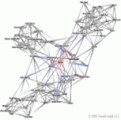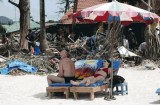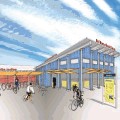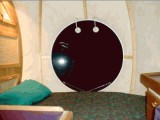|
January 10 to 16, 2005 < Prev PostPermalinkNext Post >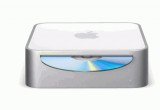 The big news in Kev's world this week was the introduction of the Mac mini - it's a small yet powerful box not much wider than a CD that supports pretty much any display, keyboard, and mouse for $500. Not only is it less wasteful environmentally, but you could easily velcro this to the underside of a desk (or to the back of your LCD monitor) and never have to see it. Or put it in a drawer. Never mind this "den" the reviews keep suggesting it would be great for. In the PC world the average consumer seems to think that bigger is better. On the contrary, smaller computers by their nature require higher technology and more elegant design and engineering. Hence my rule of thumb: never upgrade to a computer that's bigger than your older one. If you're an average PC user, you'd be insane to keep a Windows machine at this point. I've spent more time removing viruses and fixing problems on one friend's Windows XP box than the combined time spent helping support the 20 people in Hawaii that I've helped convert to the Mac platform. And not one would ever go back! Here's the official Mac mini page: And here's Gizmodo's quick summary: 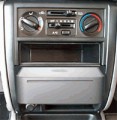 About two minutes after someone pointed out that the Mac mini was smaller than a standard car radio, companies started working on plans to offer in-car Macs to handle entertainment and car functions. Hey, which technology would you rather have running your car - Microsoft's or Apple's? Remember last year when an onboard Windows system crashed, trapping the Finance Minister of Thailand in his BMW?  Of course, note that you can create installations of hundreds of Mac minis (for computer labs and offices), all remotely (and centrally) upgradable and managed via Apple Remote Desktop:  Are you a Mac-hating bigot? Or are you a slavish Apple devotee that will buy anything they make? Here's the Apple store of the future: New Tech
The makers of the popular Stuffit compression application have found a way to compress JPEG image files by up to 30%! 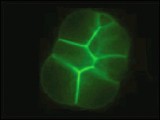 Scientist have created synthetic "vesicles" that resemble crude living cells - the line between life and not-life is starting to get pretty blurry. "This is rather philosophical," says Dr Libchaber of Rockefeller University: The new 555-seat Airbus A380 is the world's biggest airliner ever built. And it's more fuel efficient than your car: Here's a PowerPoint presentation on the manufacturing process - why they don't offer it as a PDF file is beyond me: Modern Life
 Here's a great collection of census trend charts, maps, and rankings, viewable by category and location: A new book, "Collapse", explores the reasons behind the fall of once-great civilizations. It outlines five causes: environmental damage, climate change, hostile neighbors, loss of trade partners, and stupidity. "Any one or two plus stupidity will do": Some avid video game players are having difficulty separating reality from the game, thanks to the increasing quality of such technology: In the same way that the MPAA is cracking down on movie pirates, Monsanto is cracking down on farmers that save their patented GM seeds from year to year: Terrorism and You
The Web and the Internet are enabling more direct soldier-to-family communications that ever before. Hopefully, this will make societies more aware of the real costs of war:  "Babylon Wrecked by War: US-Led Forces Leave a Trail of Destruction and Contamination in Architectural Site of World Importance": Health/Environment
The new vortex dehydration system turns trash into a fine dry powder and can reduce landfill volume by 90%. Those in Hawaii pondering the landfill problem should take note: Here's some pictures of the system: Unfortunately, it looks like the GM power train in Hawaii's new hybrid buses is not quite as fuel efficient as promised: One in five FDA scientists were pressured to approve drugs they thought were unsafe. One described his work as "junk science". Not a good thing for our pill-popping society: Harper's Index for December 2004.
Another crack in the suburban facade: In the Bay Area, 50% of residents want new homes built closer to job centers. Paper or plastic? Neither. Here's a great answer to this question: "Popular shampoos contain toxic chemicals linked to nerve damage". Apparently this includes Head and Shoulders, Suave, Clairol and Pantene Hair Conditioner: Use eco-friendly Dr. Bronner's products instead. They're cheap, organic, effective, and smell great: Art/Design/Music
 The public domain USGS digital data image archives. Nice, quick stock imagery for all kinds of uses: Here's a link to a torrent file of ALL the USGS images in this archive: The detailed and pretty scientific art of Ernst Haeckel, 1899-1904:  A few months since its launch, allofmp3.com seems to be gaining credibility and customers. Tracks are one-tenth the cost of those in the iTunes music store and are offered in a variety of qualities and formats: |
